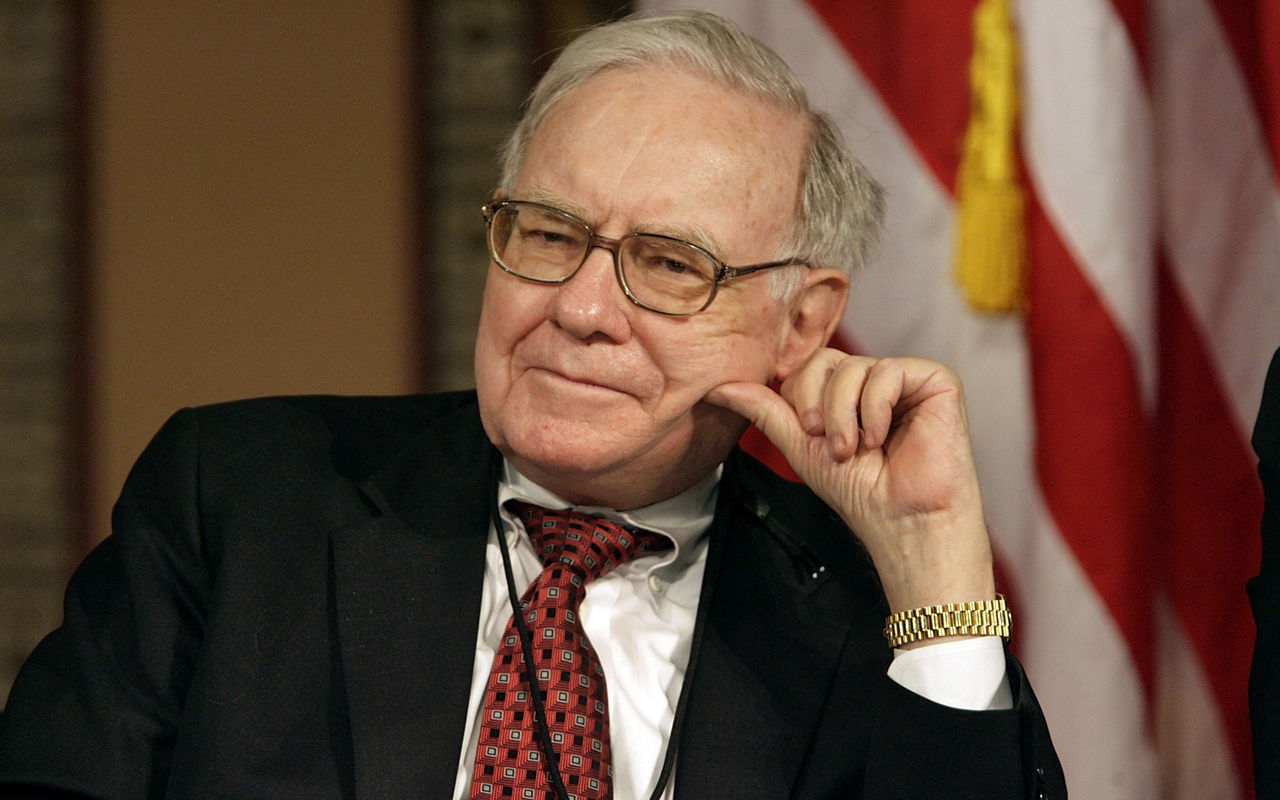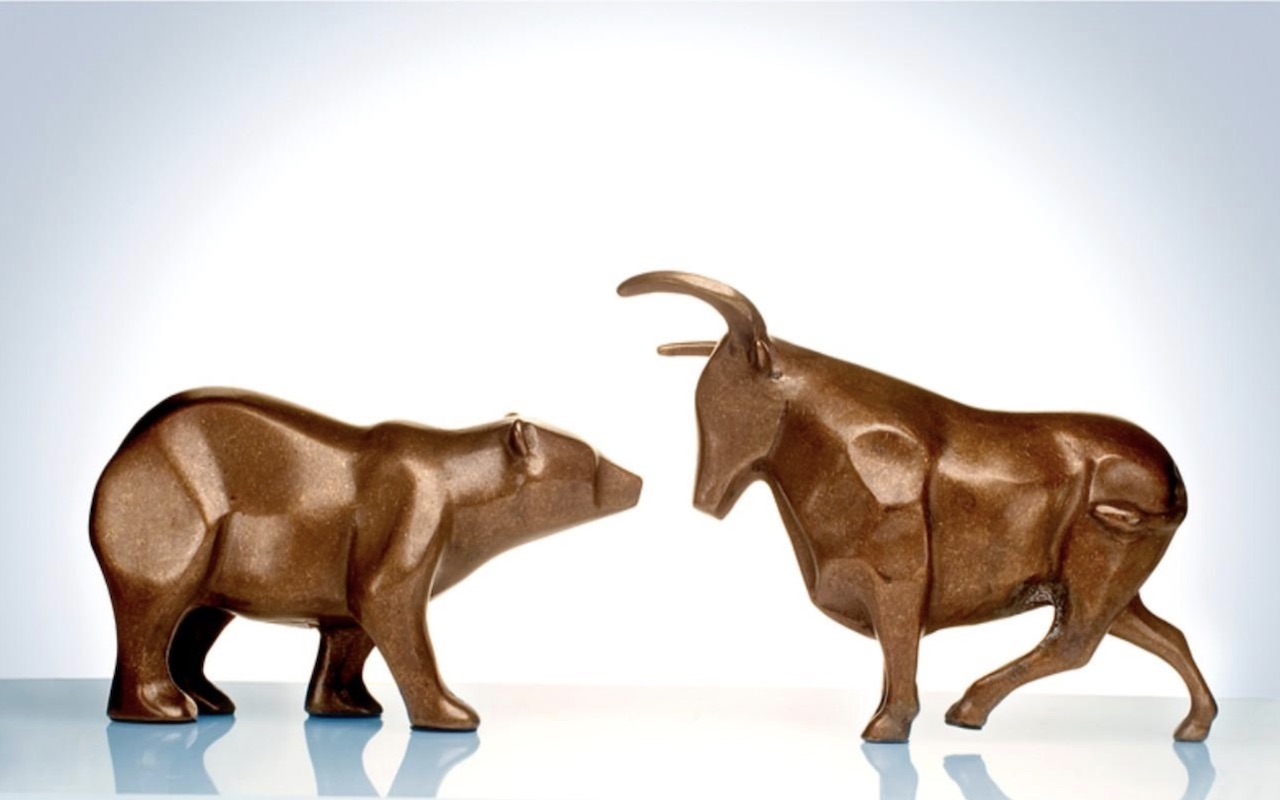What Kind of Investor Are You?
When it comes to managing our portfolios, we tend to fall into one of four behavioral types.


Profit and prosper with the best of Kiplinger's advice on investing, taxes, retirement, personal finance and much more. Delivered daily. Enter your email in the box and click Sign Me Up.
You are now subscribed
Your newsletter sign-up was successful
Want to add more newsletters?

Delivered daily
Kiplinger Today
Profit and prosper with the best of Kiplinger's advice on investing, taxes, retirement, personal finance and much more delivered daily. Smart money moves start here.

Sent five days a week
Kiplinger A Step Ahead
Get practical help to make better financial decisions in your everyday life, from spending to savings on top deals.

Delivered daily
Kiplinger Closing Bell
Get today's biggest financial and investing headlines delivered to your inbox every day the U.S. stock market is open.

Sent twice a week
Kiplinger Adviser Intel
Financial pros across the country share best practices and fresh tactics to preserve and grow your wealth.

Delivered weekly
Kiplinger Tax Tips
Trim your federal and state tax bills with practical tax-planning and tax-cutting strategies.

Sent twice a week
Kiplinger Retirement Tips
Your twice-a-week guide to planning and enjoying a financially secure and richly rewarding retirement

Sent bimonthly.
Kiplinger Adviser Angle
Insights for advisers, wealth managers and other financial professionals.

Sent twice a week
Kiplinger Investing Weekly
Your twice-a-week roundup of promising stocks, funds, companies and industries you should consider, ones you should avoid, and why.

Sent weekly for six weeks
Kiplinger Invest for Retirement
Your step-by-step six-part series on how to invest for retirement, from devising a successful strategy to exactly which investments to choose.
How would you describe your personality? Adventurous? Shy? Studious? Did you know that you have an investing personality, too? It turns out that when it comes to managing our portfolios, we tend to fall into one of four behavioral types—although there’s usually a little overlap among them. Each type comes with its own set of biases that can trip us up, some more intractable than others. Observations about these behavioral investment types come from Michael Pompian, CEO of Sunpointe Investments, in Clayton, Mo., and author of Behavioral Finance and Investor Types: Managing Behavior to Make Better Investment Decisions.
Each investor type will likely answer the following question, from a questionnaire in Pompian’s book, differently.
When it comes to financial matters, I most agree with which statement:
From just $107.88 $24.99 for Kiplinger Personal Finance
Become a smarter, better informed investor. Subscribe from just $107.88 $24.99, plus get up to 4 Special Issues

Sign up for Kiplinger’s Free Newsletters
Profit and prosper with the best of expert advice on investing, taxes, retirement, personal finance and more - straight to your e-mail.
Profit and prosper with the best of expert advice - straight to your e-mail.
- Losing money is the worst possible outcome.
- I should act quickly on opportunities to make money.
- I need to be satisfied that I have taken the time to understand an investment I plan to make, even if I miss opportunities by doing so.
- I should not be in charge of overseeing my money.
If B sounds like you, you might be what Pompian calls an Accumulator. If you answered A, you’re likely a Preserver. These two types, the most and least risk-tolerant, respectively, have a number of emotional biases lurking in their psyches. Accumulators are often driven, overconfident people who mistakenly believe they can control the outcomes of their investments, often trading too frequently. Preservers have an excessive aversion to loss. Uneasy during times of stress or change, they tend to stick with the status quo out of fear of making the wrong decision.
In between these two extremes are the Independents, who probably answered C, and Followers, who checked D. Independent investors are full of original ideas, but confirmation bias leads them to give more weight to factors that support their own thinking; self-attribution bias persuades them that portfolio gains are due to their own talents and not to the bull market. As you can imagine, Independents often stray from their plan.
Followers may lack any interest in or aptitude for investing, and tend to follow the lead of their friends or colleagues, or the investing fad du jour. They often fall prey to recency bias, which causes investors to look at the current or most recent trend and extrapolate it into the future. Hindsight bias makes investment outcomes seem predictable (it was obvious!) when they look back at past events. As a result, Followers may overestimate their tolerance for risk.
Have a plan
The key difference between Accumulators and Preservers on the one hand and Independents and Followers on the other is that the biases of the latter two groups are primarily cognitive rather than emotional—so a little education can go a long way toward helping these investors make better decisions. “It’s easier to change the way someone thinks than the way someone feels,” says Pompian.
As an adviser, he finds Accumulators to be the most challenging because they often disregard advice—such as the client back in the 2008 financial crisis who wanted to sell everything, at just the wrong time. By contrast, says Pompian, there are still timid Preservers on the sidelines of this bull market after some eight years. He advises them to put a set amount in the market at regular intervals. Regardless of your investment type, says Pompian, “the number-one way to counteract almost every behavior bias is to have an investment policy, or a plan, and stick to it.”
Profit and prosper with the best of Kiplinger's advice on investing, taxes, retirement, personal finance and much more. Delivered daily. Enter your email in the box and click Sign Me Up.

Anne Kates Smith brings Wall Street to Main Street, with decades of experience covering investments and personal finance for real people trying to navigate fast-changing markets, preserve financial security or plan for the future. She oversees the magazine's investing coverage, authors Kiplinger’s biannual stock-market outlooks and writes the "Your Mind and Your Money" column, a take on behavioral finance and how investors can get out of their own way. Smith began her journalism career as a writer and columnist for USA Today. Prior to joining Kiplinger, she was a senior editor at U.S. News & World Report and a contributing columnist for TheStreet. Smith is a graduate of St. John's College in Annapolis, Md., the third-oldest college in America.
-
 Dow Leads in Mixed Session on Amgen Earnings: Stock Market Today
Dow Leads in Mixed Session on Amgen Earnings: Stock Market TodayThe rest of Wall Street struggled as Advanced Micro Devices earnings caused a chip-stock sell-off.
-
 How to Watch the 2026 Winter Olympics Without Overpaying
How to Watch the 2026 Winter Olympics Without OverpayingHere’s how to stream the 2026 Winter Olympics live, including low-cost viewing options, Peacock access and ways to catch your favorite athletes and events from anywhere.
-
 Here’s How to Stream the Super Bowl for Less
Here’s How to Stream the Super Bowl for LessWe'll show you the least expensive ways to stream football's biggest event.
-
 How I'm Going to Invest My Mega Millions Lottery Jackpot
How I'm Going to Invest My Mega Millions Lottery JackpotThe odds of winning the Mega Millions lottery are effectively zero, but here's how I'm investing my fortune should I hit the jackpot.
-
 Four Random Facts and Thoughts About Warren Buffett
Four Random Facts and Thoughts About Warren BuffettIf I love Warren Buffett so much why don't I just marry him?
-
 Investing in Gold Is Dumb
Investing in Gold Is DumbStocks are better than gold for both generating wealth and offering protection against inflation.
-
 What's So Scary About a Mega-Cap Tech Bull Market?
What's So Scary About a Mega-Cap Tech Bull Market?Bears say the market can't keep rallying when only five mega-cap tech stocks are driving returns, but history suggests otherwise.
-
 We Are Not in a Bull Market
We Are Not in a Bull MarketIt takes more than a 20% gain off the low to proclaim the beginning of a new bull market.
-
 Why I Don't Buy Stocks
Why I Don't Buy StocksIt's nearly impossible to beat the market – but it is cheap and easy to match it.
-
 Amy Domini on the Secrets of Sustainable Investing
Amy Domini on the Secrets of Sustainable InvestingESG An ESG pioneer says finding good corporate citizens is the best way to make money.
-
 New Ways to Invest in Bitcoin
New Ways to Invest in BitcoinBecoming an Investor ProShares Bitcoin Strategy and other ETFs offer an easier way to gain bitcoin exposure than buying the actual cryptocurrency.